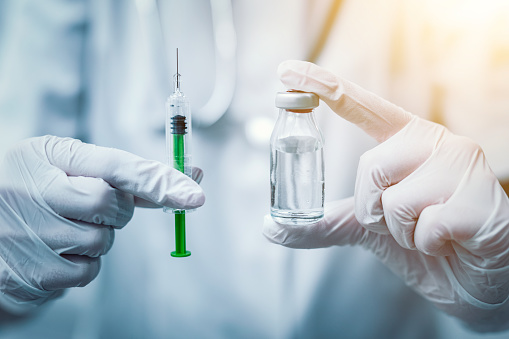Road to Recovery: Managing Facial Injuries Post-Accidents
Facial injuries resulting from accidents can be distressing, impacting both physical appearance and functionality. The complexity of facial injuries demands specialized care and attention to ensure effective treatment and optimal recovery. Managing facial injuries post-accidents involves a multifaceted approach that includes immediate care, medical intervention, and ongoing rehabilitation. Let's explore the challenges, treatments, and strategies for managing facial injuries to aid in the recovery process.
Understanding Facial Injuries Post-Accidents
- Types of Facial Injuries:
- Soft Tissue Injuries: Cuts, bruises, or lacerations to the face that require immediate attention and wound care.
- Fractures and Trauma: Facial bone fractures, such as nose, cheekbones, or jaw fractures, often needing surgical intervention.
- Impact of Injuries:
- Physical Implications: Facial injuries affect appearance, breathing, speech, and vision, impacting daily functions.
- Psychological Effects: Emotional distress and psychological impact due to changes in facial appearance or scarring.
Immediate Care and Initial Steps
- Seek Medical Attention:
- Urgent Care: Immediate evaluation by medical professionals is crucial for assessing the extent of injuries and initiating necessary treatments.
- Wound Care: Prompt attention to cuts, controlling bleeding, and preventing infection through proper wound cleaning.
- Stabilization and Pain Management:
- Immobilization: Stabilizing fractures or dislocations using splints or braces to prevent further damage.
- Pain Relief: Administering pain medication or anesthesia to alleviate discomfort.
Treatment Approaches for Facial Injuries
- Surgical Interventions:
- Facial Reconstruction: Surgical procedures to repair soft tissue injuries, reconstruct facial bones, or address damaged facial features.
- Orthognathic Surgery: Corrective surgery for jaw or facial structure realignment post-injury.
- Dental and Oral Care:
- Dental Reconstruction: Restorative dental procedures to repair damaged teeth or gums due to facial trauma.
- Oral Health Maintenance: Oral hygiene measures to prevent complications and maintain dental health during recovery.
- Rehabilitation and Follow-up Care:
- Physical Therapy: Exercises to regain facial muscle function, improve mobility, and minimize scarring.
- Psychological Support: Counseling or therapy to address emotional distress and aid in coping with changes in appearance.
Challenges and Considerations
- Emotional Impact: Coping with changes in appearance and psychological effects can be challenging for individuals recovering from facial injuries.
- Long-Term Recovery: Facial injuries may require extensive rehabilitation and multiple surgeries for complete recovery, affecting daily life and work.
Strategies for Recovery and Management
- Adherence to Treatment Plans:
- Follow Medical Advice: Strict adherence to prescribed medications, post-operative care, and rehabilitation exercises.
- Regular Check-ups: Scheduled appointments with healthcare providers to monitor progress and address any complications.
- Nutrition and Lifestyle Adjustments:
- Balanced Diet: Nutritious meals rich in vitamins and protein to aid in healing and recovery.
- Avoidance of Risky Activities: Temporarily avoiding activities that may pose risks to facial injuries during the healing process.
- Support Systems and Coping Mechanisms:
- Family and Social Support: Surrounding oneself with a supportive network aids in emotional recovery.
- Mental Health Care: Seeking professional help if experiencing anxiety, depression, or psychological distress.
Local Assistance: Finding an Oral Surgeon
If you're based in Salt Lake City and have suffered from a facial injury, it's important to consult a specialized oral and maxillofacial surgeon for your recovery process. These surgeons are experienced in managing complex facial injuries and can guide you through the entire recovery journey, from initial treatment to rehabilitation.
There are multiple reputable oral surgeons in Salt Lake City who are committed to helping patients recover from facial trauma. They offer a range of services including facial reconstruction, orthognathic surgery, dental reconstruction, and follow-up care. With their extensive knowledge and advanced techniques, these professionals ensure that you receive the best care for your specific needs.
Remember, the journey towards recovering from a facial injury can be a challenging one, but with the right medical team and support system, you can confidently navigate the road to recovery.
Empowering Recovery and Restoration
Facial injury recovery demands a holistic approach, encompassing physical, psychological, and emotional aspects. By fostering resilience, adhering to treatment plans, and seeking support, individuals can navigate the challenging journey toward facial injury recovery more effectively.
In the aftermath of facial injuries post-accidents, the path to recovery is a journey that demands patience, perseverance, and comprehensive care. By recognizing the significance of immediate care, specialized treatment, and ongoing rehabilitation, individuals can embark on the road to recovery with determination and hope.
Empowerment through effective management strategies, support systems, and professional care stands as the beacon that leads to restoration, healing, and renewed confidence following facial injuries, ensuring a brighter future post-accidents.

